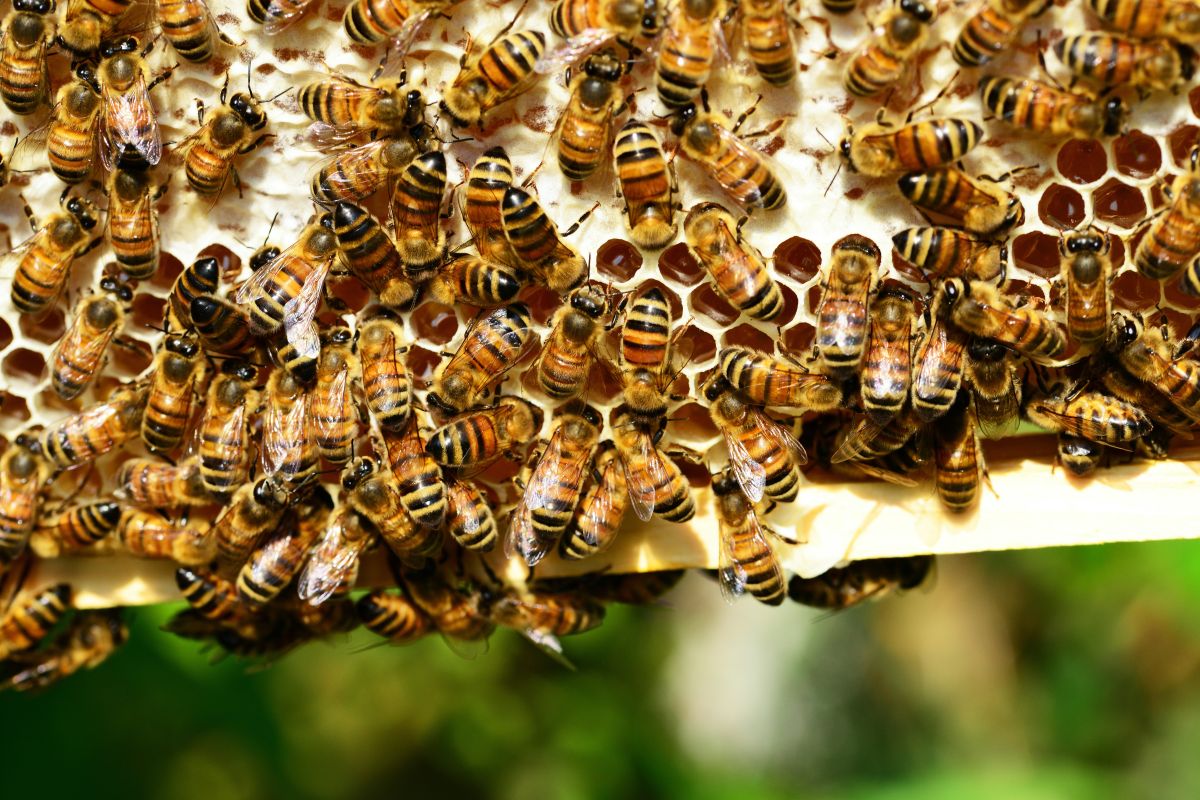The world’s first vaccine for bees has been approved in the United States, designed to protect these helpful critters from American foulbrood disease caused by Paenibacillus larvae“.
The vaccine, which has just received approval from the United States Department of Agriculture (USDA), has been developed by the American biotech company Dalan Animal Health.
Instead of giving individual bees an injection, which would certainly be problematic, the vaccine comes in the form of killed bacteria that are mixed with the food the worker bees consume.
The vaccine is then digested and transferred to glands that produce royal jelly, the nutrient-rich secretion that queens are fed.
The queen ingests the mixed gelatin and fragments of the vaccine are transferred to her developing ovaries and eggs. Having been exposed to the inactive bacteria, the developing larvae emerge from their eggs with immunity against American foulbrood.
American foulbrood can be catastrophic to bee hives. It is a highly infectious disease introduced into the hive by bees drifting from nearby colonies carrying spores of the bacteria.
These spores are extremely resistant and can remain viable for many years in contaminated equipment. They are also extremely resistant to extreme weather conditions and many chemicals that would kill other bacteria.
Once the disease enters a hive, it will kill the young larvae, which are the most vulnerable to infection. The dead larvae will then shed spores that spread to the rest of the hives, wiping out the rest of the colony. Severe infections can severely weaken the colony and wipe out the entire hive.
Before Dalan’s vaccine, there was no safe and sustainable solution for the prevention of this disease. Now, thanks to recent USDA approval, commercial beekeepers will be able to use the vaccine in their hives.
“This is an exciting step for beekeepers as we are relying on an antibiotic treatment that has limited efficacy and requires a lot of time and energy to apply to our hives,” said Trevor Tauzer, owner of Tauzer Apiaries and board member of the California State Beekeepers Association in a statement.
“If we can prevent an infection in our hives, we can avoid costly treatments and focus our energy on other important elements of keeping our bees healthy,” he added.
Beyond honey, bees are trusted to pollinate food. According to the FDA, about a third of the food consumed in the United States comes from crops pollinated by honey bees.
Also read:
Scientists develop promising treatment for erectile dysfunction
· FDA will allow pharmacy chains to sell abortion pills under prescription and certain requirements
· Why did humans lose their fur? Scientists discover new genetic clues
